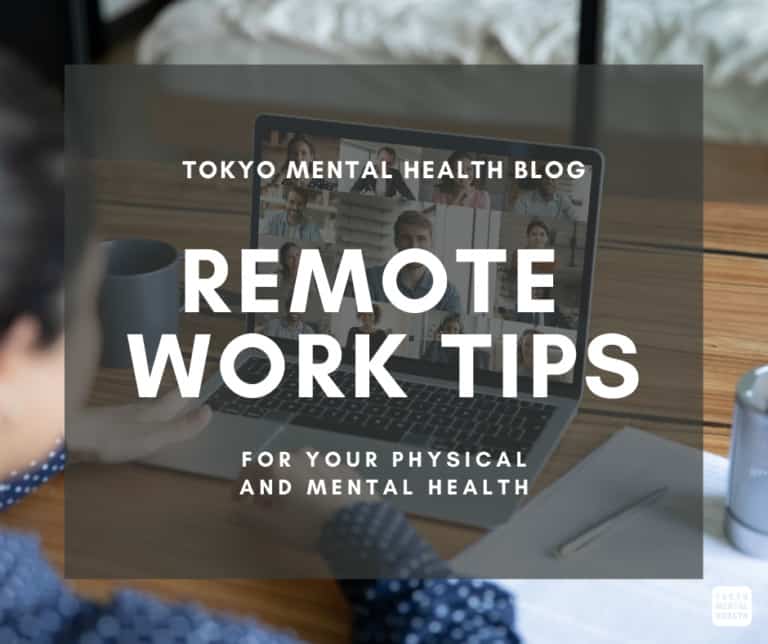- 2021/10/24
- Self Help & Tips

Working from home can offer employees many benefits, including increased flexibility, no commute, and a better work-life balance. However, working remotely can also pose several risks, including feelings of isolation, depression, and anxiety. Here are some remote work tips to help you maximize the benefits of a work-from-home situation while also coping with its unique stresses.
Build connections and effective communication at work.
At work, you may find that miscommunications are more frequent, that your work relationships are more strained, or that your boss is also struggling to adapt to a work-from-home model. If you are facing these challenges at work, you can:
- Learn ways to bond virtually with coworkers. Start small by learning more about their lives and interests in the first or last minutes of your Zoom call. Doing so can help both parties remember they are working with a real person on the other side of their phone or computer.
- Learn about and practice effective communication that focuses on being clear, direct, and empathetic.
- If you find yourself in a more difficult work-related situation, get in touch with human resources, confide in a trusted coworker or friend, or ask a therapist to help you come up with problem-solving or coping strategies.
Take care of your body.
Whether at work or at home, sitting for extended periods of time can lead to neck, shoulder, and back pain. While working remotely, you can have greater control over when and how you take care of your body during the day. This could include:
- Giving your eyes frequent breaks away from looking at screens. Do this at least once every 20 minutes.
- If possible, get up and move around your workspace or go outside for a break to stretch. If you are at home and would rather stay inside, make the most of being in your own home and turn on some music and move!
- Try one of these stretches that you can do while seated for your arms, torso, neck, and legs.
Ensure that you are working in a position and environment that is comfortable for you. If sitting at a desk for extended periods of time is not possible because of a disability or health issue, find a place where you feel both physically supported and mentally focused, even if that place is your sofa or bed.
Don't neglect relationships at home and seek assistance when needed.
More time at home can sometimes mean an increase in interpersonal stress and conflict. This can be true especially if more than one person is working from home, your living space is small, or you have to navigate home and childcare responsibilities. Be sure to try to:
- Have conversations about routines and schedules. Start a shared calendar so that everybody in the household knows when somebody may need the room for a meeting or needs quiet to complete an important work task.
- Express appreciation and gratitude. Whether for doing the dishes or for taking a walk so somebody else could have the apartment to conduct a meeting, notice and express appreciation for one another’s efforts and thoughtfulness.
- Let others know if you are feeling frustrated. Use “I” statements that allow you to express how you feel without making assumptions or accusations. Learn how to set and maintain healthy boundaries at home.
If your situation is dangerous and you are facing abuse at home, you can visit the Domestic Violence Hotline website, where you can chat in English, Chinese, Korean, Indonesian, Spanish, Portuguese, Tagalog, Thai and Vietnamese (phone calls and emails are offered in Japanese only).
Reach out to Tokyo Mental Health for more support.
If you are facing any of the challenges related to remote work and need support, don’t hesitate to contact Tokyo Mental Health to book an appointment with one of our counselors or psychologists. We are here for you in Tokyo and Okinawa, as well as online.